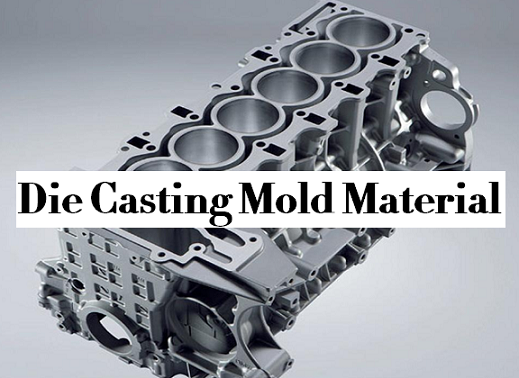Our Stahl Specialty Company Diaries
Our Stahl Specialty Company Diaries
Blog Article
The Basic Principles Of Stahl Specialty Company
Table of ContentsGetting My Stahl Specialty Company To WorkThe Facts About Stahl Specialty Company RevealedSome Known Details About Stahl Specialty Company The 7-Minute Rule for Stahl Specialty CompanyStahl Specialty Company Things To Know Before You Buy
The subtle difference exists in the chemical content. Chemical Contrast of Cast Aluminum Alloys Silicon promotes castability by minimizing the alloy's melting temperature level and enhancing fluidness throughout spreading. It plays an important duty in enabling complex molds to be loaded precisely. Additionally, silicon adds to the alloy's stamina and put on resistance, making it useful in applications where toughness is critical, such as auto parts and engine components.It additionally enhances the machinability of the alloy, making it much easier to refine into ended up products. By doing this, iron adds to the total workability of light weight aluminum alloys. Copper boosts electric conductivity, making it advantageous in electrical applications. It also improves deterioration resistance and includes in the alloy's overall stamina.
Manganese adds to the stamina of light weight aluminum alloys and improves workability. It is commonly made use of in wrought light weight aluminum items like sheets, extrusions, and accounts. The visibility of manganese help in the alloy's formability and resistance to cracking throughout manufacture procedures. Magnesium is a light-weight component that offers toughness and effect resistance to aluminum alloys.
Zinc improves the castability of light weight aluminum alloys and helps control the solidification procedure during casting. It boosts the alloy's toughness and hardness.
Stahl Specialty Company Fundamentals Explained
Due to the fact that aluminum-silicon alloys have great spreading residential properties, high gas properties, straightforward processes, and excellent deterioration resistance, aluminum-silicon alloys are most frequently utilized in the die-casting industry in your home and abroad. At the same time, aluminum-silicon alloys are also relatively early and extensively identified alloys established and made use of in die-casting. After constant research study and renovation, many of the present worldwide mainstream aluminum-silicon alloys have been settled and are absolutely nothing greater than A356, A360, A380, ADC12, B390, and A413.
The key thermal conductivity, tensile stamina, return stamina, and prolongation vary. Among the above alloys, A356 has the highest thermal conductivity, and A380 and ADC12 have the least expensive.

Stahl Specialty Company Fundamentals Explained
In precision spreading, 6063 is appropriate for applications where intricate geometries and premium surface area coatings are critical. Instances consist of telecommunication enclosures, where the alloy's premium formability enables smooth and visually pleasing styles while maintaining architectural integrity. In a similar way, in the Lights Solutions market, precision-cast 6063 elements produce classy and effective lights fixtures that need detailed forms and good thermal performance.
(https://canvas.instructure.com/eportfolios/3389549/home/foundries-in-missouri-and-aluminum-metal-casting-crafting-precision-building-trust)
It causes a finer surface coating and better corrosion resistance in A360. The A360 shows superior elongation, making it perfect for complex and thin-walled elements. In precision spreading applications, A360 is well-suited for sectors such as Consumer Electronics, Telecommunication, and Power Tools. Casting Foundry. Its boosted fluidness allows for complex, high-precision elements like mobile phone housings and interaction tool housings.

In precision casting, aluminum website here 413 radiates in the Customer Electronics and Power Equipment sectors. This alloy's superior deterioration resistance makes it a superb selection for outdoor applications, ensuring resilient, durable items in the pointed out industries.
The smart Trick of Stahl Specialty Company That Nobody is Discussing
Once you have chosen that the light weight aluminum pass away casting process appropriates for your job, a critical next action is selecting the most ideal alloy. The light weight aluminum alloy you select will significantly impact both the spreading process and the properties of the last item. As a result of this, you have to make your choice meticulously and take an informed technique.
Determining the most ideal aluminum alloy for your application will certainly imply evaluating a broad array of features. The very first category addresses alloy attributes that affect the production process.
The alloy you pick for die casting directly influences numerous elements of the casting procedure, like exactly how simple the alloy is to work with and if it is prone to casting issues. Warm fracturing, also called solidification cracking, is a common die casting flaw for aluminum alloys that can result in inner or surface-level tears or splits.
All about Stahl Specialty Company
Specific light weight aluminum alloys are extra vulnerable to warm splitting than others, and your option needs to consider this. Another usual flaw found in the die casting of light weight aluminum is pass away soldering, which is when the cast stays with the die walls and makes ejection challenging. It can damage both the actors and the die, so you must try to find alloys with high anti-soldering homes.
Corrosion resistance, which is currently a remarkable attribute of light weight aluminum, can differ substantially from alloy to alloy and is a vital particular to take into consideration depending upon the environmental conditions your product will certainly be exposed to. Wear resistance is an additional building commonly looked for in aluminum items and can set apart some alloys.
Report this page